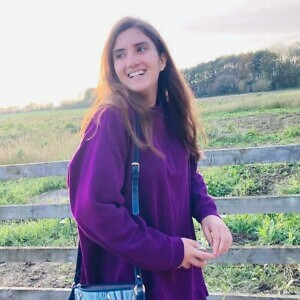- About
- Convenors
- Programme 2023 - 2024
About
‘Contemplation: theory / practice’ investigates the ideas, history, and applications of contemplative traditions from around the globe. Contemplation is a wide-ranging term encompassing different meanings for different groups, and is adopted by this network as a touchstone for exploring a rich diversity of theories and practices united around a particular set of characteristics. These include (but are not limited to): the pursuit of altered states of consciousness, the cultivation of existential meaning, and attentional strategies deriving from both religious and non-religious contexts. Sessions will feature scholars and practitioners from a range of academic, spiritual, and artistic specialisms to discuss and explore these different contemplative modalities. Such specialisms may be drawn from the fields of theology, art history, literary studies, yoga studies, sociology, psychology, philosophy, and neuroscience, among others.
The network is intended as a forum to bring together the theoretical study of contemplation with its applications, spheres which have been historically divided. In recent decades, critical theorists have emphasised the importance of the experiential in academic work; a call to acknowledge the subjectivity of scholarship. In contemplative studies, this involves attending to the lived experiences of practitioners in addition to theorising contemplation’s phenomenology, cultural specificity, and scientific basis. This may involve conversations between scholars and practitioners, or indeed an integrated first-person approach to both. With this united focus, we can better understand the impacts of contemplation as, say, a well-being practice, or as a means to developing environmental or social consciousness. Reported impacts of sustained contemplative practice include increased attentional capacity, compassion, self-awareness, and emotional intelligence. But can and should such practices be removed from historical-cultural contexts and operationalised for widespread use? What are these histories, and how have we suppressed or denied them agency? And what are the practical, philosophical, and political implications of repurposing their ideas? These are but a few questions which animate discussions at the network’s events.
‘Contemplation: theory / practice’ is a space to reflect, imagine, and meditate on the ways humans connect with our minds and bodies. We intend for the network to be expansive: a space to think (and not think); a space to reinhabit and witness the self and its relation to the world. We hope for the discussions to be comparative, global, and inclusive, making room for traditions and voices historically elided by scholarship in the field. We seek to investigate contemplation as a living tradition, which grows and changes with time.
Supported by CRASSH
Convenors
Convenors
- Hannah Lucas (Newby Trust Research Fellow, Newnham College)
- Tanya Kundu (PhD candidate, Faculty of Divinity)
About the convenors
Dr Hannah Lucas is the Newby Trust Research Fellow in English at Newnham College, Cambridge. Her research lies the intersection of literary history, religious studies, theology and philosophy—focused on medieval contemplative literature, and the relationship between the medieval and modernity. She completed her DPhil at the University of Oxford in 2020 on the medieval mystic Julian of Norwich and the phenomenology of wellbeing. She is preparing a monograph developing this research, while also working on a new project on criticism as a contemplative practice.

Tanya Kundu is a PhD candidate in the Faculty of Divinity at the University of Cambridge. Her work focuses on the ethics of theological finitude, and the corresponding fragility of theological method. She engages in particular with the category of ‘use’ as it arises in Augustinian theology and queer theory, and has an article in Literature and Theology discussing ‘queer use’ in relation to contemporary theologies of forgiveness.
Faculty advisors
- Alex Da Costa (Professor of Medieval Literature and Early Print at the Faculty of English, University of Cambridge)
- Simeon Zahl (Professor of Christian Theology in the Faculty of Divinity, University of Cambridge)
Programme 2023 - 2024
Easter Term 2024
| Contemplation |
|---|
|
From cave to clinic: embracing nuance and interdisciplinarity in the contemporary study of contemplative practices 3 Apr 2024 10:00 - 11:30, Online Julieta Galante (Melbourne) |
Lent Term 2024
| Contemplation |
|---|
|
Contemplative teaching and interreligious encounter; historical and contemporary perspectives 29 Jan 2024 17:30 - 19:00, Online & Room SG2, Alison Richard Building, 7 West Road, Cambridge Rowan Williams (University of Cambridge) |
|
Academia, illness, and contemplation: living and working with Julian of Norwich 12 Feb 2024 17:30 - 19:00, Online & Room SG2, Alison Richard Building, 7 West Road, Cambridge Claire Gilbert (Cambridge) |
|
Contemplative practice and spiritual growth in prison 26 Feb 2024 17:30 - 19:00, Online & Room SG2, Alison Richard Building, 7 West Road, CB3 9DP Selina Sasse (Director of The Prison Phoenix Trust) |
Michaelmas Term 2023
| Contemplation |
|---|
|
Becoming breath: semiogenesis, identity and contemplative praxis 23 Oct 2023 17:30 - 19:00, Online & Room SG2, Alison Richard Building, 7 West Road, Cambridge Theo Wildcroft (SOAS) |
|
Colour, light and contemplation: Evelyn Underhill’s early encounters with the arts 6 Nov 2023 17:30 - 19:00, Online Ayla Lepine (St James’s Picadilly) |
|
Four elements: an invitation and creative workshop 20 Nov 2023 17:30 - 19:00, Online & Room SG2, Alison Richard Building, 7 West Road, Cambridge Bhanu Kapil (Cambridge), Andrew Wille (Editor) |


